by Venchito Tampon Jr | Last Updated on October 24, 2021
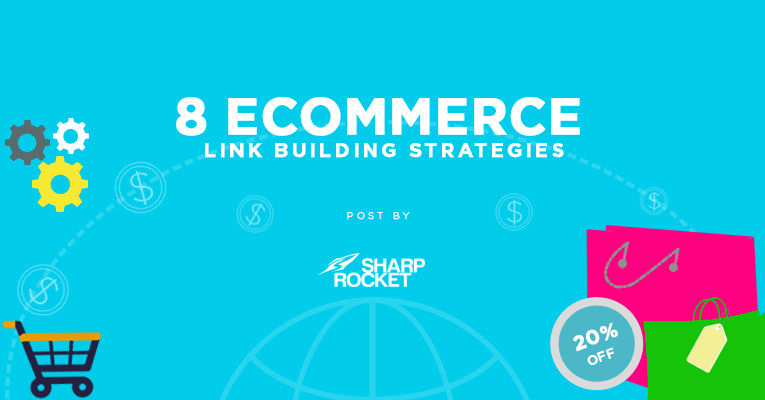
The promising ecommerce sites are emerging in various industries today, which gives tight to the competition as years are passing by. Marketers from these online shopping sites are finding ways to be better at servicing their target audiences, building strongly their own brands and ensuring they’re getting ahead of others in online search.
What strategies ecommerce sites require from marketers to make these properties optimized for search are as difficult as tactics required to generate links for these sites’ important pages – considering the low linkability nature of product and category pages.
In this post, I’ll be sharing to you 8 link building strategies for ecommerce sites – some are common to you but I guarantee you’ll still get some new tactics here.
Let’s get started.
1. NETWORK-FOCUSED LINK BUIDING
The low-hanging fruits of links will come from those people you are connected with. They can either be your manufacturers, dealers, retailers, suppliers, service providers, sponsorship partners, event organizers and other networks you engaged with up until today for any kind of business reasons.
To get started, if you are a reseller or retailer of products:
STEP 1: Grab a list of all goods you are licensed to sell and from there, you start looking for available “where to buy” / retailers / dealers on their sites. You can use Ahrefs to export an inventory of products you are selling online, then create a list of websites where these products came from.
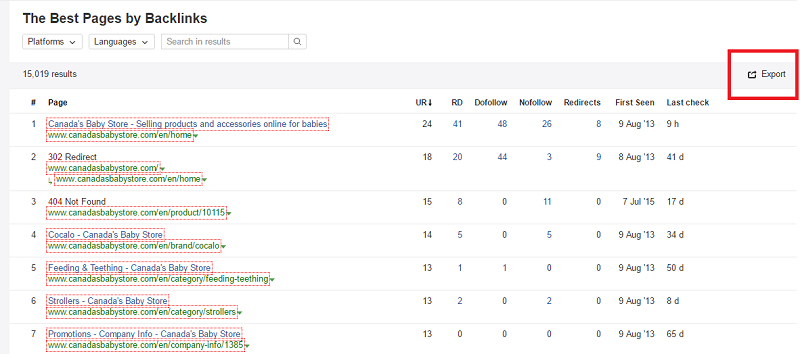
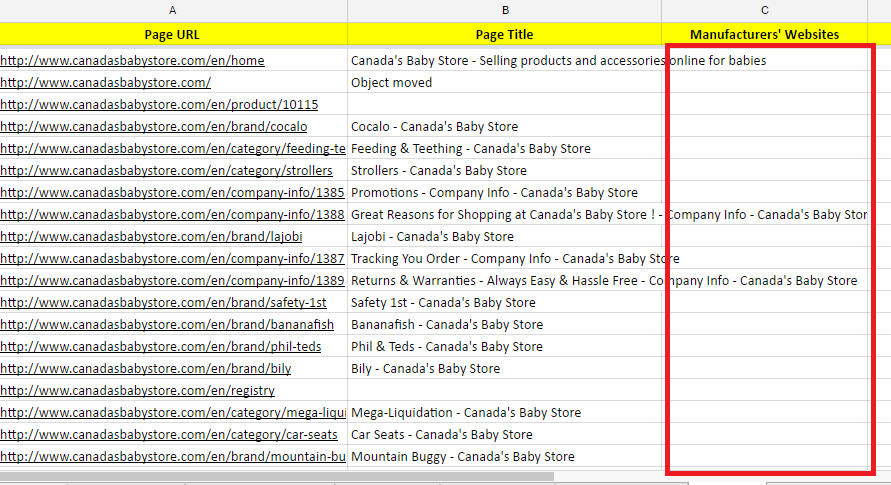
STEP 2: Once done with the list, search individually in each site for any available partner list pages. You can use the search operator, “site:domain.com” plus any of the following keywords:
- Preferred retailers
- Related Links
- Partners
- Authorized Dealers
- Where to buy
- Online retailers
- Online dealers
- Find our products
- Additional retailers
- Internet resellers
For example, if you are reseller of Cocalo, then you can do a simple search on the site and grab their where to buy page.
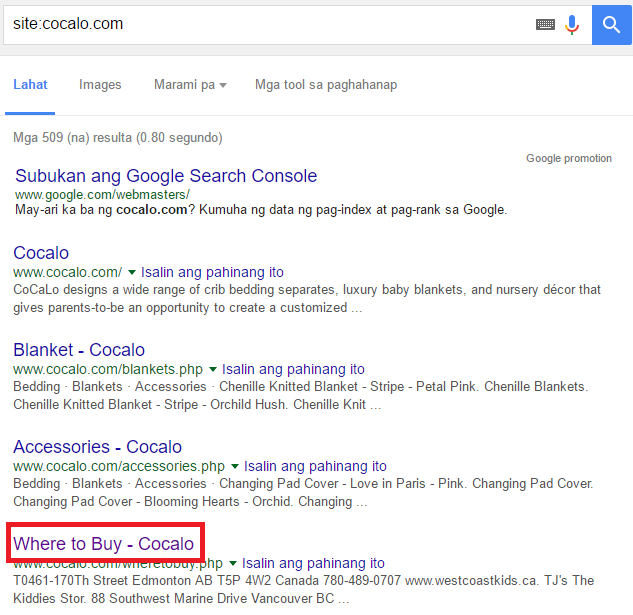
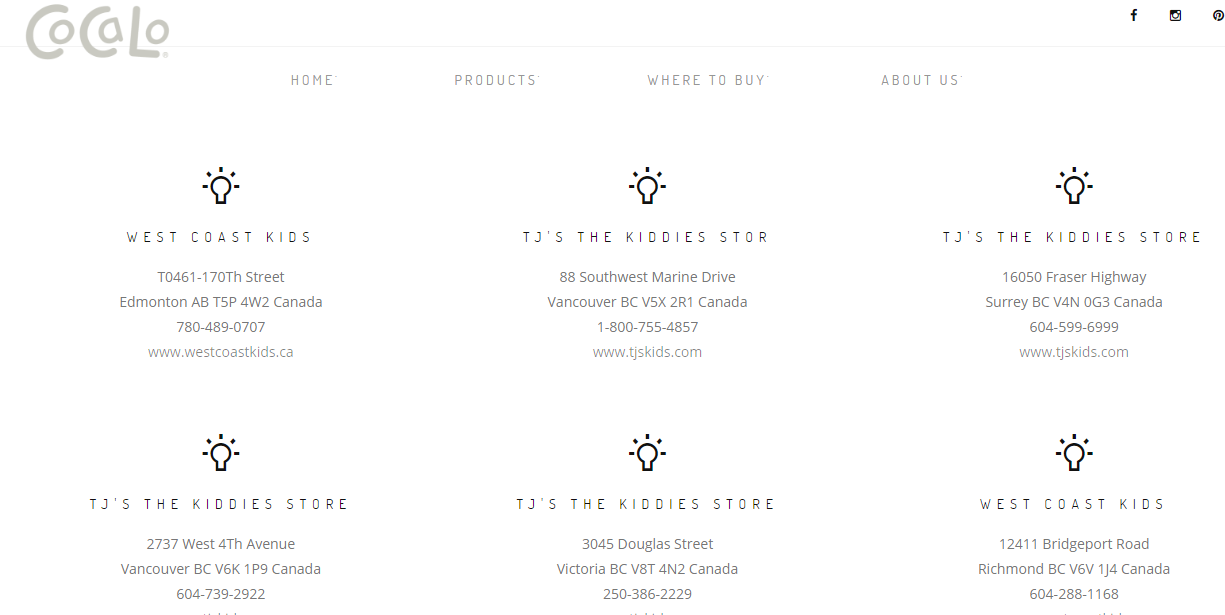
STEP 3: Collect contact information from target link opportunities and reach out to them. You can use this email template below:
Hi [Name],
I’m Venchito from [eCommerce brand], an online shopping site on [niche]. We started selling [BRANDX] on our website since [date].
I saw your “where to buy page” [LINK1] and wondering if we can also be listed as one of the resellers.
Looking forward to hearing from you.
Thanks!
MORE ECOMMERCE RESOURCES:
2. IMAGE-BASED LINK ACQUISITION
Images have formed a huge part of the web for the past decade, seeing its very importance in visual experience and in defining basic information or data online.
True enough, if you started maximizing your visual assets on the web, it couldn’t just help your site build a better site user experience, but also in assisting your site’s link acquisition process.
If you’ve been working on image-heavy industries, it’ll be advantageous for you to explore link opportunities from blogs that need help in curating high-quality images. After all, who doesn’t want original high-resolution images for their content assets – i.e. blog posts?
How to maximize your site’s images?
Step 1: Go to your image database and look for visual assets that can be distributed to bloggers. You can use the image Google search, type in site:domain.com and click on the Images tab.
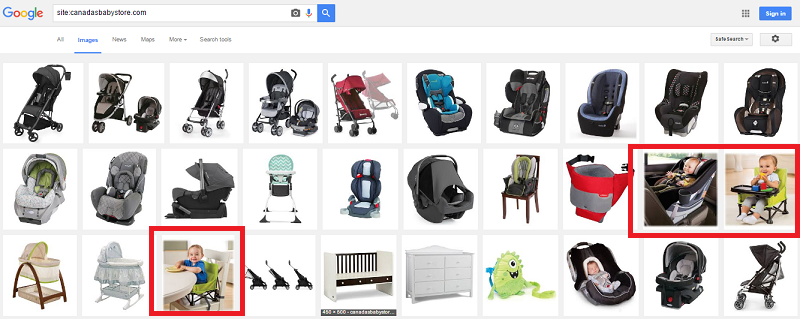
Step 2: Curate a list of bloggers that you think will highly benefit from your images – use your preferred metrics to gauge blogs’ authority (Ahrefs Rank, Domain Authority), but I much prefer SEMRush traffic as a valuable metric for this link building strategy, since you also want to look for valuable estimated organic traffic that you can drive referral visits to your website.
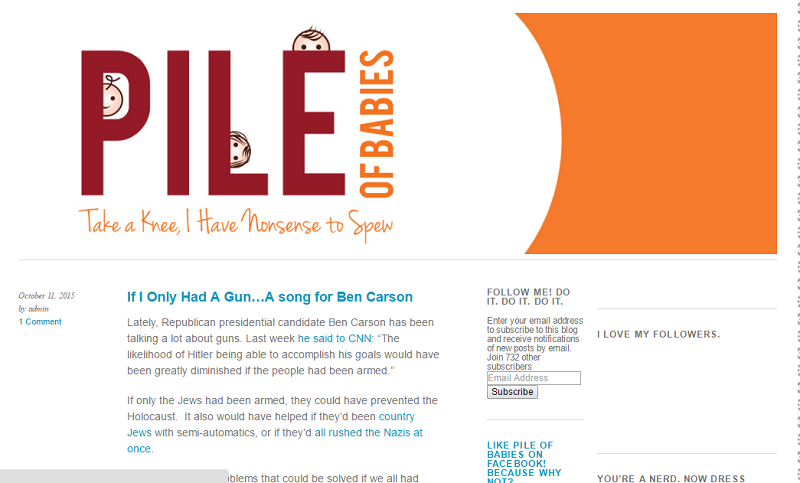
Step 3: Reach out to your listed blogs and offer your high-quality images. Pro tip: use exclusivity as part of your initial pitch (we exclusively offer these images to you..)
Hi [Name],
I was looking through your website and noticed that you have a lot of great content about caring for babies, parenting and maternity. Just wanted to let you know that I can offer you high-quality images that you can use for your existing and new blog posts. These are all FREE and EXCLUSIVE for your blog.
Let me know if you’re interested and I’ll send the images right away.
Thank you,
Venchito
Step 4 (optional): Track blogs that acquired your images but haven’t credited you as their sources. Given that your visuals will be featured on other blogs, there are high chances that their readers can also get your images.
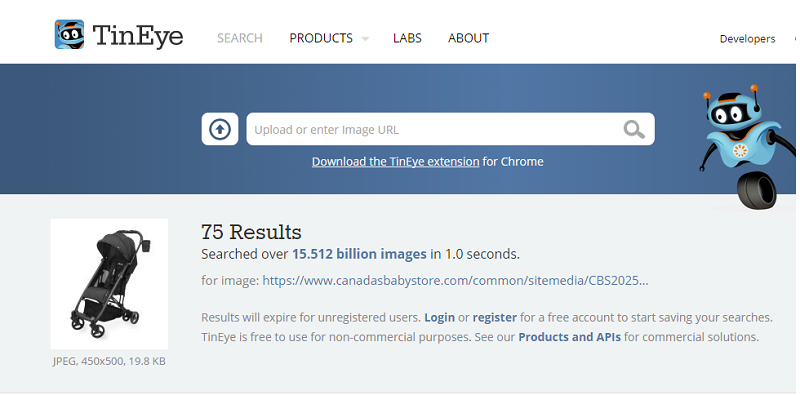
3. HORIZONTAL/VERTICAL COMPETITOR LINK ANALYSIS
One basic yet undervalued skill in link building is the ability to identify the right competitors. You may be thinking of all pages/sites that are ranking on the first page of search results for your target keyword as your direct competitors – but this is just beneath the surface.
If you see Amazon is on the top spot, it isn’t smart to go find all pages linking to this big website.
How you can identify your direct competitors and build links from pages they recently acquired from?
Step 1: Go to DMOZ and use it to find competitors based on horizontal and vertical niche levels. Let’s say you are selling handcrafted furnitures, your horizontal-based competitors are sites in this list. Make a list of these direct competitors.
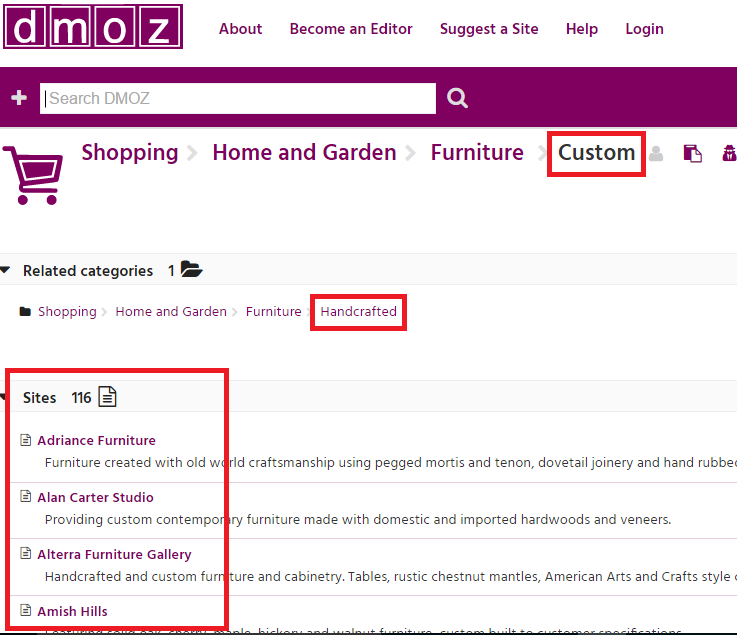
Step 2: Add to your list vertically-related sites by going a higher level in the Breadcrumb and finding sub-niches aside from Handcrafted. You’ll then see sites that sell different types of furniture – home furnishing, traditional, modern, so and so forth. These sites may offer products to similar target audience and you can guarantee that they acquire links from same types of websites.
Note: You still have to qualify them, but overall, you’ll get some big opportunities you haven’t found yet.
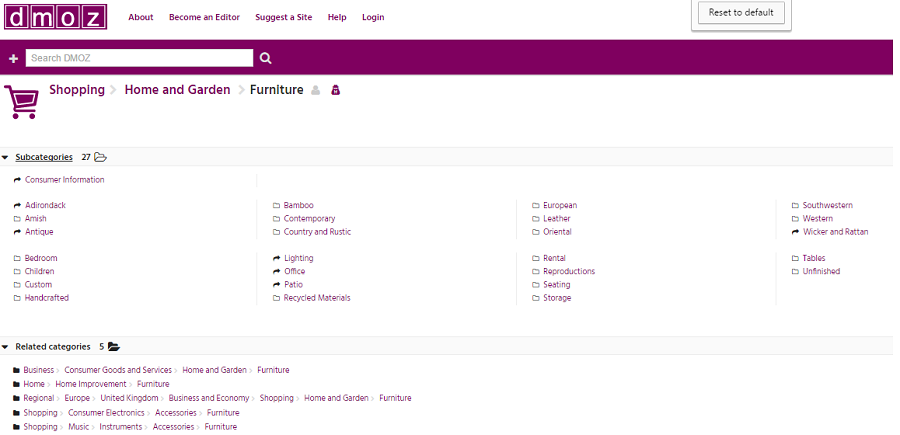
Step 3: Once you’re done list, plug in each of your direct competitor site (horizontal and vertical levels) and see their newest (recently acquired links) – see New Backlinks section.
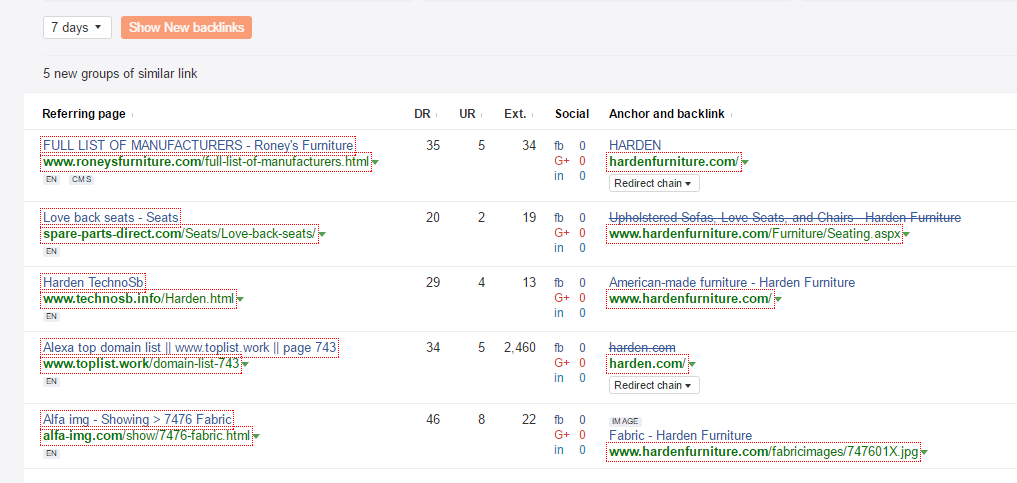
Step 4 (optional): You can look for more new backlinks by showing 30 or 60 days view of recently added links.

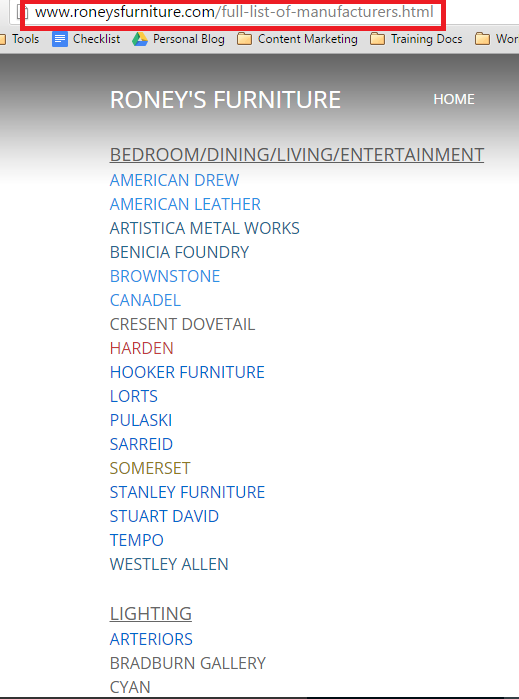
Step 5: Once you’ve gathered and qualified potential link targets, you may now reach out to them and ask if you can be added to their links/resource page. There is a higher link acquisition rate using this link building tactic since bloggers and webmasters are still in the process of updating their pages/sites.
Hi [Name].
I came across your [“list of manufacturers”] page and I noticed that you recently included [COMPETITOR BRAND] in your list.
We are also a manufacturer of [niche] products for local audiences in the US. I wanted to reach out to you directly to see if this would be a good fit for your [resource page]. You can see our recent products here:
Thanks,
Venchito
4. GENERAL ECOMMERCE LINK OPPORTUNITIES
There are a few gold mines that most eCommerce link builders aren’t capitalizing on, but can actually provide real link value to their websites. That is pursuing links in eCommerce and retail industries (general).
If your site or your client is open for publicity, then this link building strategy best fits for them. How to do it?
Step 1: Do a Google search for any of the following search phrases:
- eCommerce events OR seminars [city] OR [national]
- eCommerce “guest post” (example)
- eCommerce “gift guide” (example)
- eCommerce holiday guide
Step 2: Make a list of all possible link opportunities from sites/pages you prospected on.
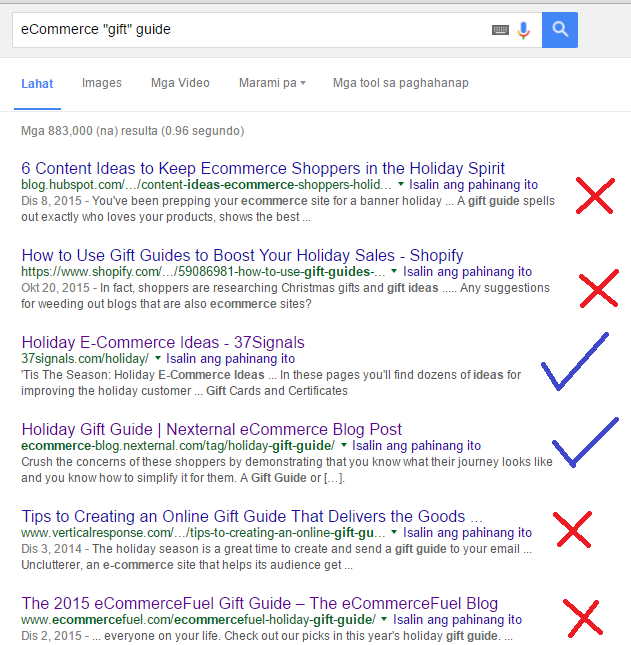
Step 3: Strategize how you can acquire links from those eCommerce-specific sites. You can either do a guest post on their blogs, attend to their local or national events where you can build relationships with the organizers, or simply asking them if they conduct interviews with eCommerce site owners or marketers.
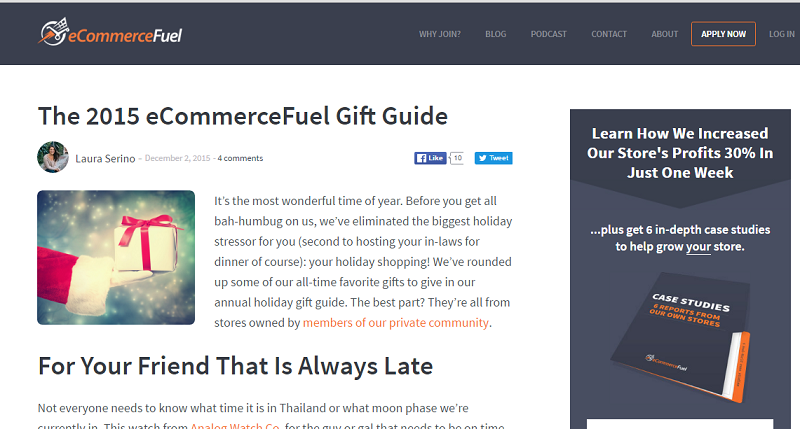
5. GET LINKS FROM CATEGORY-SPECIFIC COMPETITORS
Resource page link building is one of the classic link building strategies that you can maximize for eCommerce websites. There are, in fact, hundreds of links or lists pages intended for updates – corrections and additions on a regular basis.
If you always take time to find broken links and suggest webmasters with relevant resources (including your content), then it’s a value added proposition you can offer in manual outreach. However, this is not a necessity in eCommerce resource page link building. If you follow the next steps, you can certainly acquire links to your eCommerce target page(s) from relevant resource pages, even without the broken link UVP.
Step 1: Identify what page(s) you’d like to target to funnel your link equity through. I always recommend targeting some highly converting category pages to pass its link authority down to its products pages – they are also more linkable than individual product pages (assuming these category pages have clean layout and design).
![]()
Step 2: Look for sites that solely sell a product in your category. Let’s say, for orthodontic supplies, find sites that sell retractors and disposables. A simple Google search for where to buy” [ product ] will provide you these product-specific competitors.
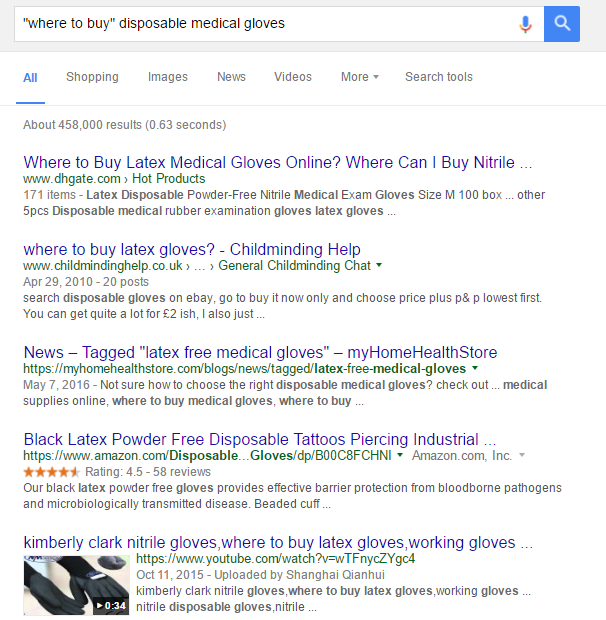
Step 3 (optional): If you can’t find any sites that just sell very specific products, you can find category-specific competitors. In our example, you may look for websites that sell orthodontic instruments or dental websites that have orthodontics category page.
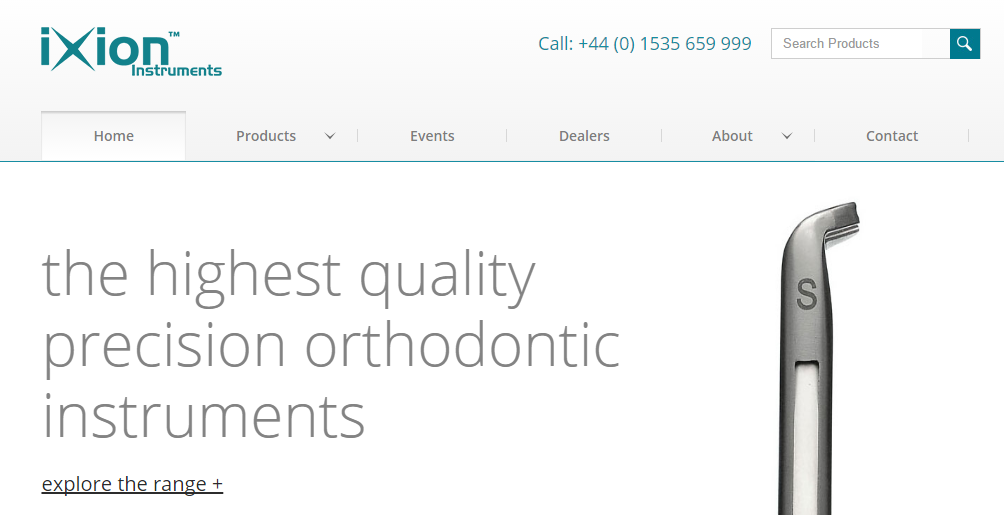
Step 4: Once you have a list of product and category specific competitors, you can plug them into Ahrefs to find resource pages they’ve been linked to. For category pages, make sure to use the Exact URL option for search link bar.
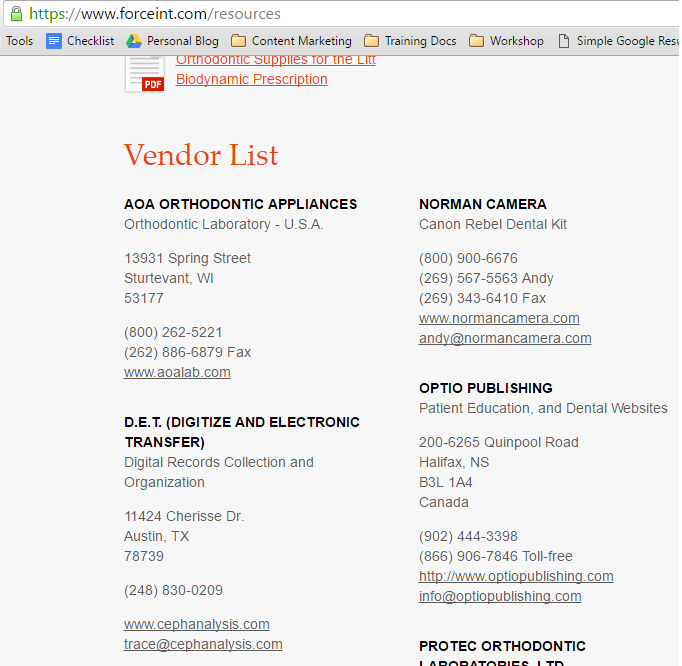
https://www.forceint.com/resources
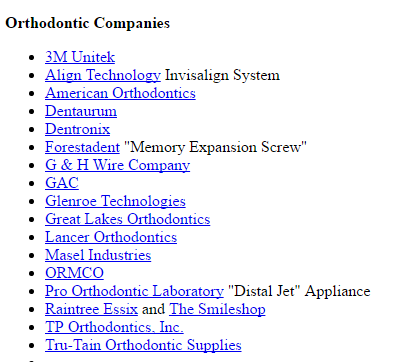
http://www.orthonj.com/links.html
Step 5: Make a list of possible resource page link opportunities in Google Spreadsheet. You’ll most likely get two types of resource pages: one that linked out to just one/two products (e.g. retractors) and another page with all external links related to orthodontic supplies.

Step 6: Hunt for the email addresses of your link prospects and send them emails. If you see a page that has an instruction as to what email address you should be directing your email to or that tells you what kind of resources they’ll only consider for resource inclusion – it would be wise to make use of it as your introductory sentence in your initial pitch. This will dramatically increase your response and link acquisition rates from pages with direct instructions about corrections and additions of resources.
i.e. “I noticed your note at the top of your exhibit resource page about corrections & additions, so…
6. TARGET MONEY-SAVING AUDIENCES
Coupons and discount pages are enticing offers online customers will certainly avail – taking advantage of people who are trying to save a buck is a link building opportunity for those in the eCommerce space.
Having said that, here’s how you can benefit from coupon-based link acquisition campaign:
Step 1: Create a dedicated landing page for deals or coupons. Well-designed page targeted to specific audiences will perform better in acquiring niche relevant links than plainly having a general deals page. Here is one example of a website that regularly publishes deals pages mainly targeting gadgets and technology equipments.
Pro tip: Use this as your angle when pitching bloggers (I’ve created a dedicated deals page for your readers…)
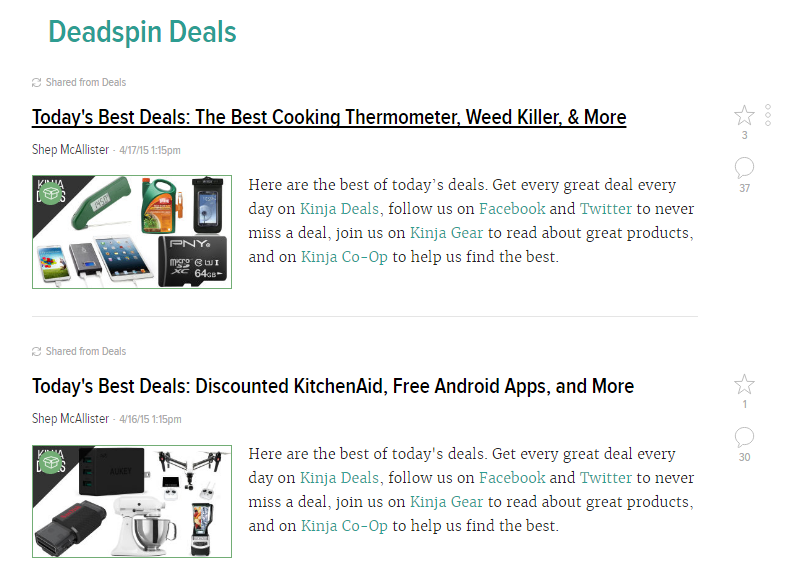
Step 2: Find both niche-specific and general coupon blogs by doing a Google search for intitle:coupon “blog”. You will then see a list of coupon sites who are targeting the same audience: people trying to save money. Here are a few general coupon blogs you can initially pitch:
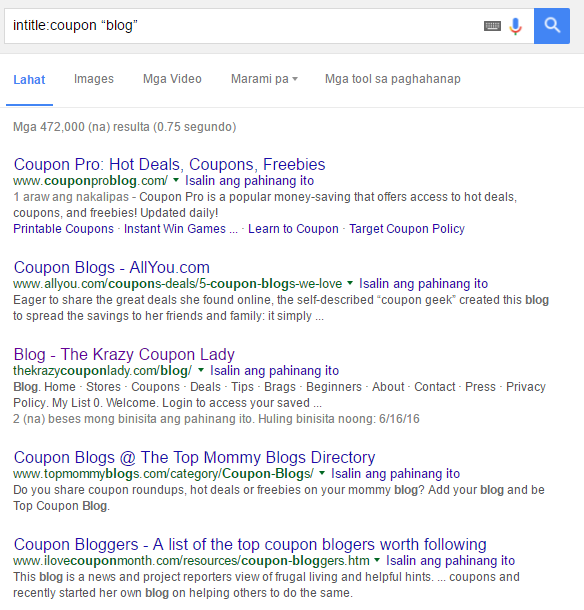
Step 3: Invest in building relationship with these coupon bloggers by giving them offers they can’t resist. One way is to use the dedicated page as your unique proposition, another is to get them as partners, so when you release a new deals page (only applicable if you sell different types/brands of products), you can make initial exposures from your offers.
7. IMPROVED GUEST BLOGGING TECHNIQUE
Guest posts are external web properties considered to be valuable assets for a company or website – given that it has so many benefits anyone can took advantage of, such as:
- It helps attract new social followers to your brand’s social profile accounts (these people may have read your guest articles on other blogs), which can semi-automate the distribution process of your existing and/or future content assets hosted on your site.
- It helps bring new converting visitors to your page/site – who can become potential email subscribers and customers of your brand.
- It helps build brand awareness and authority in your niche, especially if hosted sites are top-notch blogs in the industry since you are tapping into new groups of target audiences.
If you are still not convinced how powerful guest blogging is, you can check out more of these resources.
For eCommerce brands, guest blogging still works but not to the extent of using it solely for link acquisition – a balance between guest blogging and broken link building is a good example.
I had a client in the coupon ecommerce space that targets audiences in the parenting, relationship and mommy verticals. By using guest blogging strategy plus other link building tactics, we’ve helped the site gain organic increase on a month to month basis.
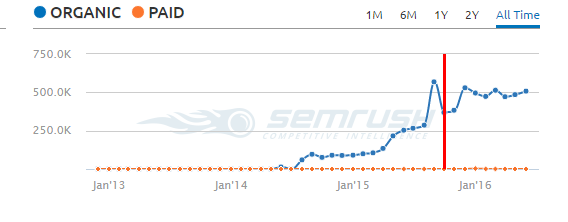
A few examples of contributed content articles are here, here and here.
Let’s learn how to use guest blogging campaign for eCommerce sites.
Step 1: List down category pages of your site that you are trying to rank for in search and have history of high conversion gains – it’s much easier to see monthly improvements from converting categories than random allotment of category pages.
 Step 2: Track sites that have been in your networks already. Look for blogs that shared your recent or top-notch content using Buzzsumo (you’ll have higher chances of landing guest posts on their blogs).
Step 2: Track sites that have been in your networks already. Look for blogs that shared your recent or top-notch content using Buzzsumo (you’ll have higher chances of landing guest posts on their blogs).
For starters, use inurl:blog “niche” OR inurl:write-for-us “keyword” to make an initial list of guest blogs.
Step 3: Pitch with content ideas not being covered in their blogs (you are likely to get more responses using this approach since you are giving more value than other publishers just trying to land a coverage with general content topics).
You can find existing posts from industry-related news sites for rewrite or recreation and use them as an angle for guest blogging pitch.
You can also contact book authors, experts and influencers in your niche and ask if you can do an interview with them – use the output interview as the finalized guest content.
Pro tip: Make sure to add internal links to guest blog’s other content in your guest posts – it will help increase the chances of getting your posts approved by publishers.
8. TRIPLE-FOLD LINKBAIT PROCESS
Linkbaiting is a form of viral content marketing aims to attract links from linkeratis – coined term for people who might give links to a content.
It is a combination of efforts focusing on three main elements: usability, evergreen and unexpected hook (source).
Knowing which type of content are useful for a specific type of audience, identifying how long a particular content can benefit its target audience and adding information and data to the web asset not yet discovered on other external sources are main ingredients towards a successful linkbait strategy.
There are various forms of linkbait content now being used by marketers, business owners and agencies including extensive/comprehensive tutorials/guides/resources, visual data/information (data sources both internal and external) and expert advices/tips on a subject matter.
Each of these types can consistently provide results to your brand – i.e. bringing more specifically targeted leads and driving more traffic (organic/direct/referral) to your website and upgrading your blog/content readership.
One example of a linkbait content that is often used in different industries is round-up post. You can see this type of content even in the most specific niche and common vertical.
Unfortunately though, most link builders don’t have a concrete plan of using round-up posts – obtaining low number of shares and links on a content with 100+ contributors.
A few reasons why it isn’t effective for some marketers:
- There is an initial intent of just building links and the primary reason why it was built – leaving no doubt that it got only a few shares from contributors.
- Not all tips are valuable – asking questions to general practitioners, not actually an expert on a subject matter would result to low-par information.
- Setting minimum number of works in answers when pitching potential contributors results to sub-par content output.
Here is how to leverage linkbait content like round-up post to acquire high-quality links to your website:
STEP 1: Create a top niche experts to follow content to initiate conversations with industry influencers. The pure intent of publishing the content is to build relationships with possible contributors.
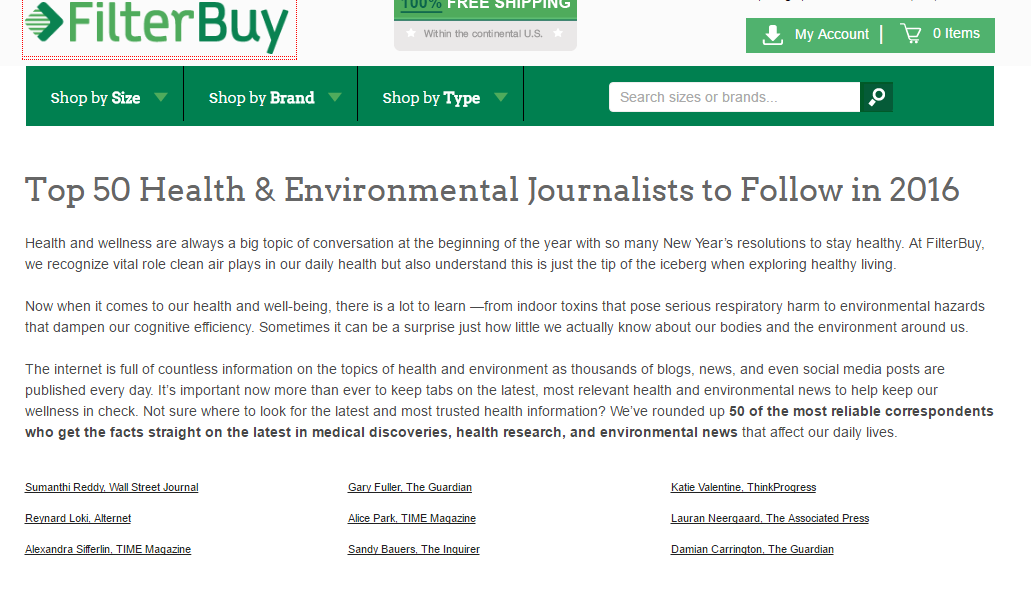
Hi [ NAME ],
I’m Venchito Tampon from [ BRAND NAME ]. We recently published a post featuring the top [ NICHE EXPERTS]. I’m so happy to tell you that you made our list because we’ve found your blog very useful to the community.
We also included a link to your website which can help you get some visitors or readers back to your blog. Feel free to comment or share the post.
Thank you,
STEP 2: Once content is published, let those people you’ve included in your post know about it. Send them an email.
STEP 3: After two weeks, send pitches to influencers/experts asking for their expert advices on one subject matter (e.g. advice to beginner interior design experts).
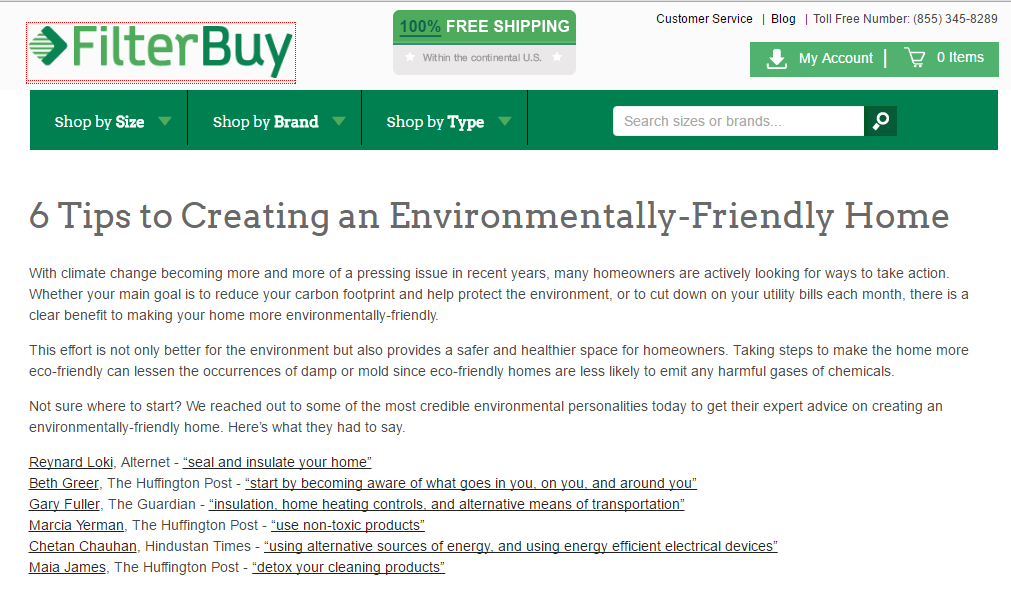
Hi [NAME],
I’m doing an expert round-up on my blog and I think many people who are new to [ TOPIC ] would love to know your answer to this question:
[ QUESTION ]
If you could send your response back by [ DATE ] as I plan to publish it on [ DATE ], that would be great. Let me know to which website you’d like us to link to.
Hoping to hear a feedback from you.
Thanks,
Venchito
STEP 4: Let your contributors know about the published crowdsourced content.
Hi [ Name ],
Hope you’re having a great week! I wanted to let you know that I just published the round-up post. Here’s the link: [ LINK ]
Feel free to share it to your friends or readers.
Thanks for contributing!
STEP 5: Create an infographic out of the expert advice content. This gives you another content asset that you can use for outreach.
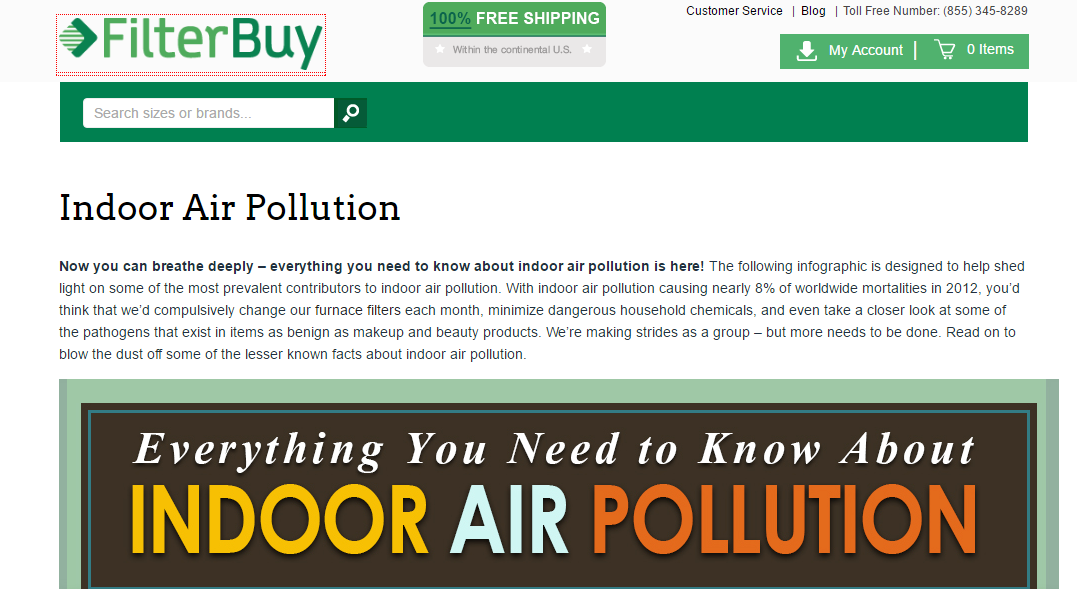
STEP 6: Promote it as much as you can, only to possible linkers – bloggers and webmasters.
Hi [ NAME ],
I came across your [ POST ]. [ TELL SOMETHING ABOUT IT]
We actually created an infographic called [ TOPIC HYPERLINKED TO THE INFOGRAPHIC PAGE ] which your readers might find it useful. [ MORE DETAILS ABOUT THE INFOGRAPHIC ].
Here are some of the findings we’d included:
[ FINDING 1]
[ FINDING 2 ]
[ FINDING 3 ]
If this finds you very interesting, I can send you a customized embed code that you can copy and paste for your blog.
I’d appreciate your feedback.
Thank you,
STEP 7: Track unlinked mentions of your content assets – x experts to follow content, round-up post and the infographic.
Hi [ NAME ],
I’m Venchito Tampon from [ BRAND NAME ] . I saw that you embedded the infographic on [ STE NAME ].
I’m reaching out to you because I couldn’t find any credit to our page or website. We actually have a copywright page for this. I’m requesting you to add a link somewhere in your introductory post or below the infographic.
Thank you,
OTHER USEFUL ECOMMERCE RESOURCES:
- Shopify blog
- Hubspot’s eCommerce blog
- Ahrefs’ post on eCommerce SEO
- 37 M-commerce Statistics & Trends in 2019
If you liked this post, you can subscribe to the email opt-in at the top or at the right sidebar and follow me on Twitter @venchito14.
Have We Been Helpful?
Want to take your eCommerce link building to the next level – — but don’t know where to start, and are feeling overwhelmed by this post.
We are here to help you. SharpRocket is a team of link building specialists who love building high quality links.
To learn more about how we can help, take a look at the services we offer and results we got for our clients.
The Author
Venchito Tampon Jr
Venchito Tampon is a Filipino Motivational Speaker, Corporate Trainer, and a Leadership Speaker in the Philippines. He is the CEO and Co-Founder of SharpRocket, a link building agency. With a decade of experience, Venchito has a proven track record of leading hundreds of successful SEO (link builidng) campaigns across competitive industries like finance, B2B, legal, and SaaS. His expert advice as a link building expert has been featured in renowned publications such as Semrush, Ahrefs, Huffington Post and Forbes. He is also an international SEO spoken and has delivered talks in SEO Zraz, Asia Pacific Affiliate Summit in Singapore, and Search Marketing Summit in Sydney, Australia. Check out his other businesses, Hills & Valleys Cafe, Blend N Sips and Saas Pursuit.
How our LINK BUILDING AGENCY builds 250 links/mo consistently using Predictable Link Building Methodology™…
- Using a SIMPLE and PROVEN system
- Using a SCALABLE strategy
- No private blog networks
- No creepy outreach emails
